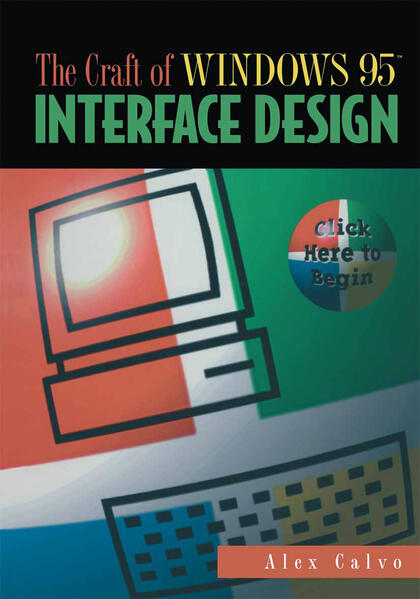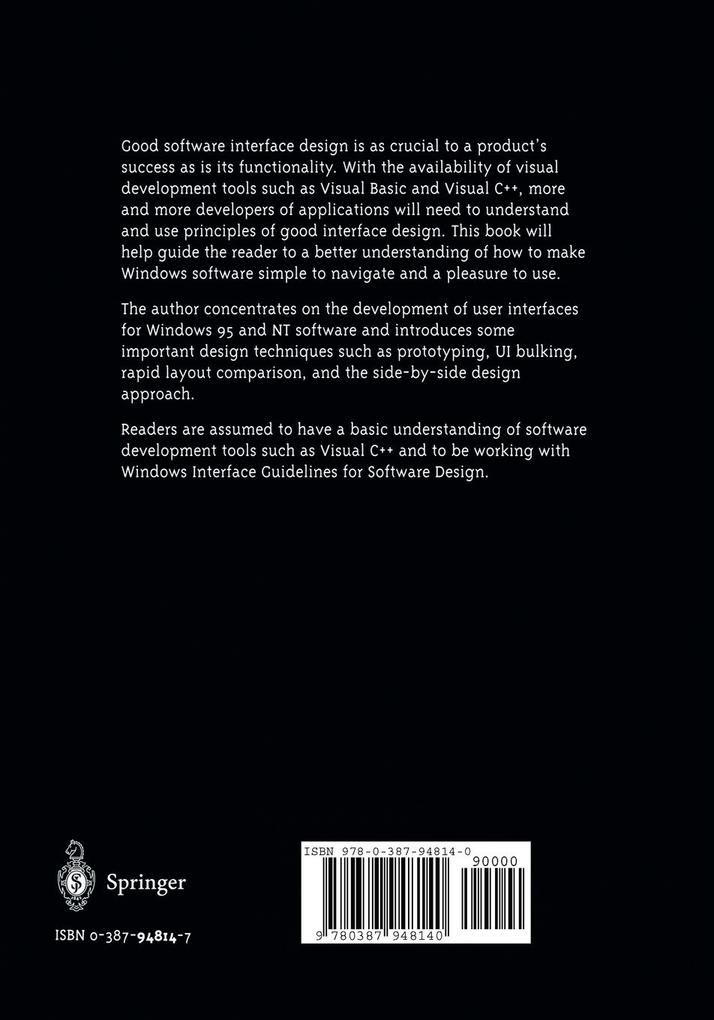Good software interface design is as crucial to a product's success as is its functionality. With the availability of visual development tools such as Visual Basic and Visual C++, more and more developers of applications will need to understand and use principles of good interface design. This book will help guide the reader to a better understanding of how to make Windows software simple to navigate and a pleasure to use. The author concentrates on the development of user-interfaces for Windows 95 and NT software and introduces some important design techniques such as prototyping, UI bulking, Rapid Layout Comparison, and the Side-by-Side Design Approach.
Readers are assumed to have a working knowledge of development tools such as Visual C++ and to be working with the Microsoft Guidelines for Interface Design.
Inhaltsverzeichnis
One Shrink-Wrapped Design. - Then and Now. - Click Here to Begin. - Wrapping It Up. - Two The Interactive Canvas. - Design Techniques. - Tools of the Trade. - Making an App an App. - Three Following Guidelines. - Concise Windows 95 Interface Guidelines. - Four How to Help. - Designing Online Help. - Creating Online Help. - Connecting Online Help. - Five Prototyping 101. - to Microsoft Visual Basic. - Types of Prototypes. - Beyond Prototyping. - Epilogue.











